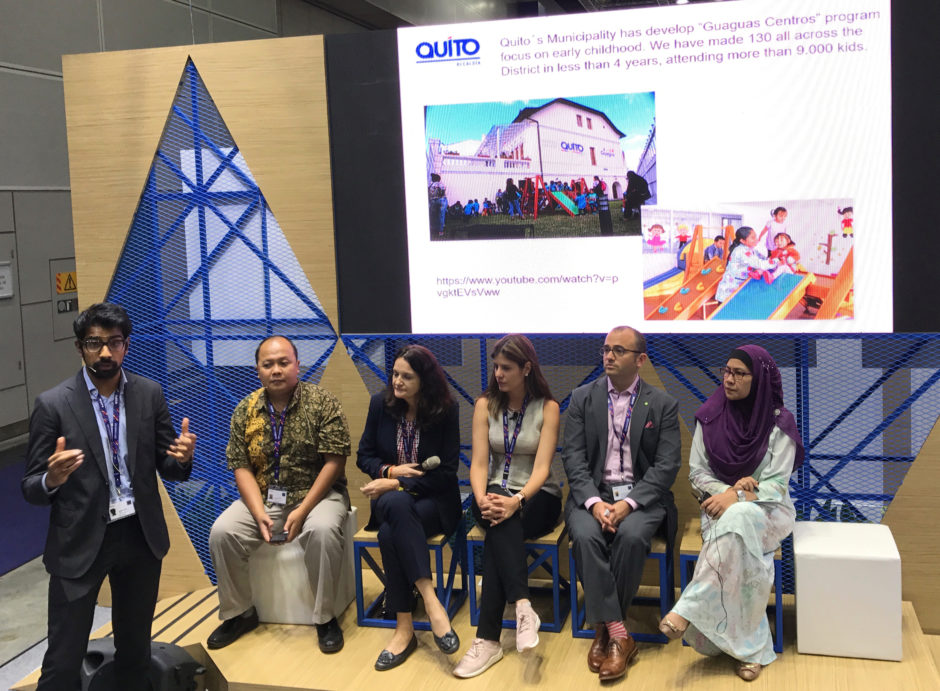
The World Urban Forum 2018 provided the first global convening platform on urban development since Habitat III – the 2016 UN Conference on Housing and Sustainable Development in Quito. Habitat III represented a milestone in the urban space with the creation of the New Urban Agenda, a new global standard and common vision for sustainable urban development. The World Urban Forum in Kuala Lumpur focused on the implementation of this Agenda, bringing together relevant sectors and facilitating novel partnerships to identify and commit to implementation of concrete solutions.
It is clear that the urban environment is increasingly tied to the wellbeing of children: The world’s population is projected to be 70% urban by 2050, and children born in cities will account for 60% of this urban growth. Of those living in urban areas, roughly 30% live in slums and children are most severely impacted by the negative consequences. How can we ensure that children living in urban areas are able to consume healthy and sustainable diets?

EAT together with C40, UNICEF, the Global Alliance for Improved Nutrition (GAIN), the Milan Urban Food Policy Pact and the NCD Alliance convened a panel at the NextCity Stage at the World Urban Forum to highlight this important challenge. “It was great to gather such a diverse group of stakeholders to explore the types of efforts that different actors can take to promote healthy and sustainable diets for children in urban areas”, said Ms. Elin Bergstrøm, Policy Officer at EAT.
Mr. Zachary Tofias, Director of the Food, Water and Waste Program at C40, highlighted how networks like the Food Systems Network, a collaboration between EAT and C40, can help cities replicate, improve and accelerate best-practices and successful solutions. Such networks also provide a space for identifying joint projects that are of mutual interest and benefit to member cities. One example of a city’s success was provided by Ms. Maria Fernanda Pacheco, President of Patronato San José of the Mayor’s Office of Quito, Ecuador. She demonstrated how the Quito Municipality is supporting early childhood development through their “Guaguas Centros” – community centers spread across the city providing a safe space for children between 1 – 3 years. The center also supports healthy child development by providing a nutritious meal four times a day, contributing to improved food security among children in Quito.
We were also fortunate to have Madam Zalma Abdul Razak, Director of Nutrition Division at the Ministry of Health; Mr. Aang Sutrisna, Senior Technical Specialist at GAIN and Ms. Marianne Clark-Hattingh, UNICEF Country Representative in Malaysia, contributing to the panel debate. Discussions centered around the need for integrating health across municipal departments, promoting community engagement around health and nutrition, including in schools, and the need to address social, economic and environmental determinants of health.
The examples presented by the panelists and the ensuing discussion emphasized the broad spectrum of multistakeholder efforts to promote an urban food environment that is healthy for both our current and future generation, and for our planet. This important discussion was continued at EAT Stockholm Food Forum on June 11-12, 2018.